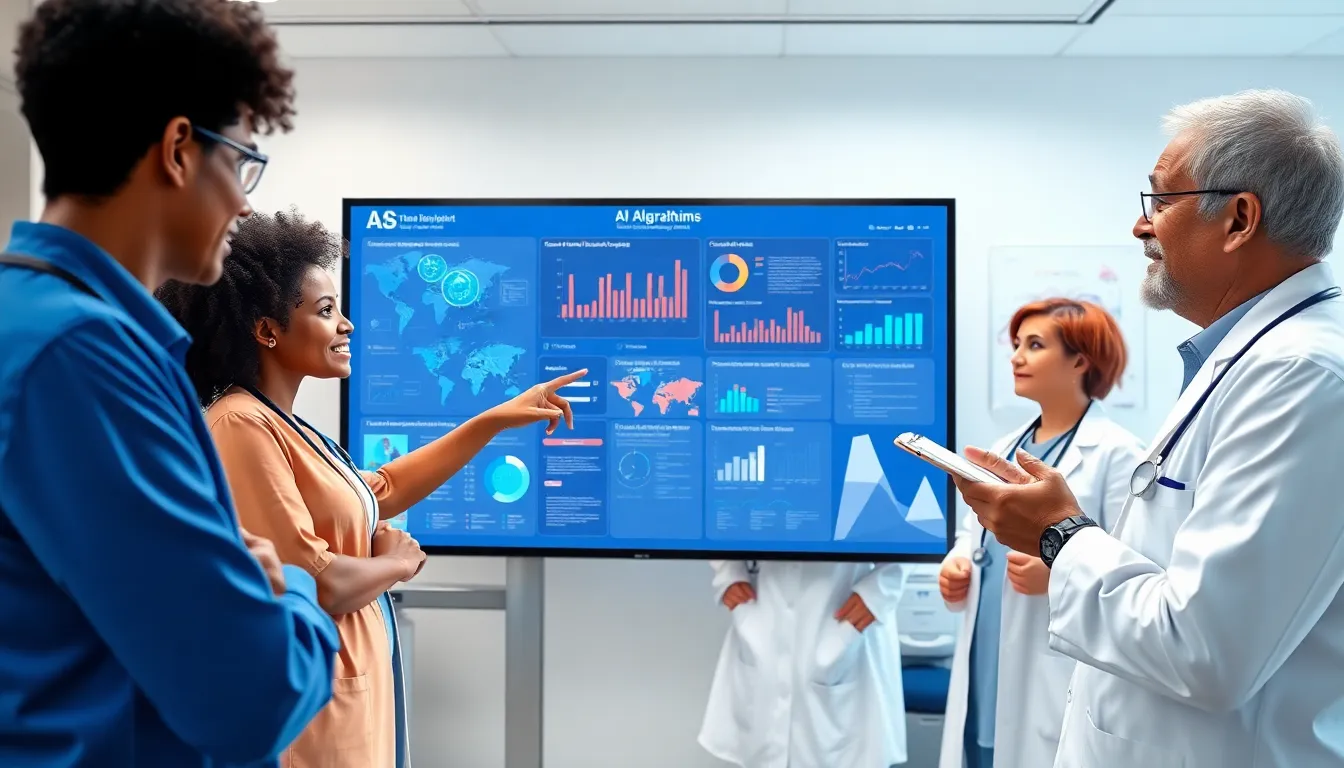In a world where your toaster could soon be smarter than your average politician, the Internet of Things (IoT) is taking center stage. IoT pilot programs are the testing grounds for innovations that promise to revolutionize everyday life. From smart homes to connected cities, these programs are where the magic happens, allowing businesses and governments to experiment before going full throttle.
Imagine a world where your fridge reminds you to buy milk and your car knows the quickest route to avoid traffic jams. Sounds like science fiction, right? Well, IoT pilot programs are making that a reality. They’re not just about gadgets; they’re about creating smarter, more efficient environments that can save time and resources. Buckle up as we dive into the exciting realm of IoT pilot programs and discover how they’re shaping the future.
Table of Contents
ToggleOverview of IoT Pilot Programs
IoT pilot programs act as testing grounds for new technologies that enhance efficiency and connectivity. They allow organizations to evaluate the impact of IoT solutions in real-world environments. By launching these initiatives, companies can gather crucial data to optimize operations and improve user experiences.
Innovative applications often emerge within these pilot programs. Cities use IoT to manage traffic flow intelligently through connected sensors. Similarly, smart home devices streamline tasks like energy consumption management. These pilot programs facilitate the integration of devices, ensuring they communicate seamlessly.
Data collection serves as a primary focus during these trials. Organizations track metrics such as user engagement, system performance, and return on investment. Analyzing this data helps refine technologies before broader implementation.
Challenges may arise during the testing phase. Connectivity issues, data privacy concerns, and user adoption can create hurdles. Organizations must address these challenges proactively to ensure program success.
Successful examples of IoT pilot programs illustrate their effectiveness. Smart agriculture projects monitor crop conditions, enhancing yield and sustainability. Retailers implement smart inventory systems to optimize stock levels and reduce waste. These cases demonstrate the tangible benefits that IoT pilot programs can deliver.
Overall, the findings from IoT pilot programs significantly influence the technology landscape. They drive innovation and support the transition towards smarter, more connected environments. Engaging in these trials prepares businesses for future advancements in the IoT sphere.
Importance of IoT Pilot Programs

IoT pilot programs play a crucial role in advancing technology and its practical applications. These initiatives serve as essential testing platforms, helping organizations to understand the potential impact of IoT on operations and daily life.
Benefits for Businesses
Businesses experience numerous advantages from IoT pilot programs. Improved efficiency results from data-driven insights, leading to optimized resource allocation. Enhanced customer experiences emerge as organizations refine their offerings based on user feedback gathered during trials. Cost reductions occur through the identification of redundant processes, allowing for more streamlined operations. Collaborations with technology providers often foster innovation, positioning businesses ahead of competitors. Additionally, successful pilot programs can attract investors by showcasing a company’s commitment to modernization and transformation.
Challenges Faced
IoT pilot programs encounter several challenges that organizations must address. Connectivity issues may arise, impacting device communication and leading to unreliable data. Data privacy concerns also pose significant risks, requiring robust security measures to protect user information. User adoption can be slow, as individuals may resist change or lack familiarity with new technologies. Moreover, integration complications often occur, complicating the deployment of IoT solutions within existing infrastructures. These hurdles necessitate careful planning and execution to ensure the success of pilot initiatives.
Key Industries Implementing IoT Pilot Programs
Various industries have begun to implement IoT pilot programs, driving innovation and efficiency in their operations. These programs test new technologies and evaluate their impact on everyday processes.
Manufacturing
Manufacturing sectors leverage IoT pilot programs to enhance supply chain management. Real-time monitoring helps track equipment performance and reduce downtime. Predictive maintenance systems can identify potential failures before they occur. Several companies utilize sensors to gather data from machinery, streamlining production processes. Enhanced resource management improves overall productivity and minimizes waste in the manufacturing sphere.
Healthcare
In healthcare, pilot programs utilize IoT devices to monitor patient health remotely. Wearable technology gathers vital signs, providing health professionals continuous data on patient conditions. Remote patient monitoring allows for timely interventions, improving outcomes. Integration of IoT solutions into hospital systems enhances workflow and resource allocation. Health organizations pilot these technologies to streamline processes and reduce costs while ensuring patient safety and care quality.
Agriculture
Agriculture benefits significantly from IoT pilot programs that optimize farming practices. Smart sensors collect data on soil conditions, weather patterns, and crop health. This information enables farmers to make informed decisions regarding irrigation and fertilization. Automation in monitoring helps enhance yields and reduce resource consumption. Pilot programs demonstrate how IoT can transform traditional farming into smart agriculture, promoting sustainability and efficiency in the sector.
Best Practices for Successful IoT Pilot Programs
Successful IoT pilot programs hinge on strategic planning and execution. Implementing best practices maximizes efficiency and leads to more effective outcomes.
Defining Clear Objectives
Setting measurable goals is essential for any IoT pilot program. Specifically defined objectives guide project development and ensure alignment with organizational needs. For instance, a smart inventory management pilot might aim for a 20% reduction in stock discrepancies. Teams should also prioritize direct user feedback throughout the pilot, as it enhances overall engagement. Involving stakeholders early in the process fosters a collaborative atmosphere that drives innovation. Regularly revisiting objectives during the pilot allows teams to adapt and refine strategies as necessary.
Data Management and Security
Robust data management protocols are crucial for the success of IoT pilot programs. Effective collection, analysis, and storage techniques ensure valuable insights are gained from trial data. Prioritizing data security protects sensitive information from potential breaches. Implementing encryption methods and access controls strengthens defenses against cyber threats. In addition, organizations must comply with relevant regulations, such as GDPR for data protection. Regular audits and vulnerability assessments help identify potential risks early. Emphasizing data integrity not only reinforces trust but also lays the groundwork for successful program expansion.
Future Trends in IoT Pilot Programs
Emerging trends in IoT pilot programs highlight advancements in automation and artificial intelligence. As organizations embrace these technologies, they streamline operations and enhance decision-making processes. Increased adoption of edge computing allows data processing closer to where it’s generated, reducing latency and improving response times.
Sustainability becomes a focal point for many initiatives. IoT pilot programs target energy efficiency and resource management, driving environmentally friendly practices across various industries. Smart cities integrate IoT solutions to monitor environmental quality, optimize energy distribution, and manage waste more effectively.
User experience improvements are expected to shape future applications. Companies plan to leverage data analytics to personalize services for consumers, leading to more satisfying interactions. Enhanced connectivity also means that devices can communicate with one another in real-time, creating intelligent networks that optimize efficiency.
Security protocols are crucial as more devices connect to the internet. Organizations concentrate on developing integrated security measures to safeguard sensitive data while maintaining user trust. Blockchain technology presents an opportunity to enhance transparency and security in IoT data sharing.
Collaboration among industries encourages innovation in pilot programs. Companies across sectors, from healthcare to agriculture, partner with tech providers to develop bespoke solutions addressing sector-specific challenges. These collaborations foster innovation and drive the advancement of IoT technologies.
Finally, regulatory compliance remains a prominent factor. Organizations keep abreast of evolving legislation related to data privacy and security, ensuring programs align with legal requirements. Strengthening compliance measures supports user confidence in IoT solutions and aids in successful program expansion.
Conclusion
IoT pilot programs are crucial for shaping the future of technology and its applications in daily life. By providing a platform for testing and refining innovative solutions, these initiatives enable organizations to harness the full potential of connected devices.
As industries like manufacturing healthcare and agriculture embrace IoT, they unlock new efficiencies and opportunities for growth. Addressing challenges such as data privacy and user adoption is essential for success.
The insights gained from these pilot programs not only enhance operational effectiveness but also pave the way for a smarter more connected world. With ongoing advancements in automation and sustainability, the future of IoT looks promising and transformative.





